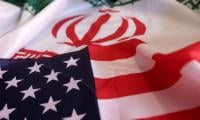KARACHI: President of the Karachi Chamber of Commerce & Industry (KCCI) Muhammad Jawed Bilwani has expressed deep concerns over the significant backlog of consignments at ports.
He demanded the relevant authorities expedite the clearance process to mitigate potential losses faced by the business community, citing demurrage and detention charges as key issues.
In a statement issued on Saturday, Bilwani proposed establishing separate processing queues for manufacturers/exporters, general industries and commercial importers. By operating these queues simultaneously, the clearance process could be streamlined, ensuring timely processing for each category and minimising disruptions to business operations. He said that such a move would also eliminate discrimination among stakeholders.
Highlighting the urgency of the situation, Bilwani said, “The current scenario at the ports demands a coherent strategy to address the backlog of consignments. This includes keeping all clearing-related activities, including banks and customs operations, fully functional on Saturdays and Sundays until the congestion is fully resolved and normal port activities resume.” He stressed that immediate implementation of this measure is critical to avoid further disruptions to industrial operations, exports and trade activities nationwide.
Bilwani suggested that to ensure timely clearance and prevent delays, an effective action plan must be implemented to process all consignments daily. This would eliminate the need for “urgent declarations”, as all entries would be managed efficiently under the proposed system of separate functional queues for manufacturers/exporters, general industries and commercial importers. Such an approach, he noted, would prevent the accumulation of pending entries, foster smoother clearance operations, and ease pressure on the system.
To enhance accountability and efficiency in the consignment clearance process, Bilwani recommended that appraisers be required to log their attendance biometrically at the start and end of each workday. This measure, coupled with predefined daily processing targets, would ensure transparency in work hours and timely completion of tasks. “Implementing these measures will improve workforce discipline, optimise resource utilisation and help achieve the overarching goal of eliminating delays in consignment clearance,” he added.
Bilwani pointed out that systemic issues were not only delaying the clearance of industrial inputs but also increasing costs, disrupting production schedules and undermining export competitiveness. These challenges exacerbate the economic difficulties faced by businesses across the country.
He mentioned three key priorities for immediate action. Per him, providing a level playing field for manufacturers/exporters, general industries and commercial importers; addressing resource shortages to reduce bottlenecks; and enhancing accountability and transparency in customs operations to lower the cost of doing business have now become a necessity.
Bilwani also welcomed the Federal Board of Revenue’s (FBR) initiative to introduce faceless customs clearance assessment under its transformation plan. He expressed optimism that this step would enhance the efficiency of customs clearance processes, save time and resources and reduce delays.
The image shows founder of Akhuwat Foundation Dr Amjad Saqib along with President and CEO of Faysal Bank Yousaf...
The logo of the Matco Foods Limited. — Facebook@matcofoods/FileKARACHI: Matco Foods Limited has entered into a...
A woman looks at a gold bangle inside a jewellery showroom at a market in Mumbai January 15, 2015. — ReutersKARACHI:...
Employees working at cargo ship Kypros Land which is loading soybeans to China at Tiplam terminal in Santos, Brazil,...
This undated image shows a policeman running past a burning vehicle in Karachi. — AFP/FileLAHORE: Rule of law in...
The Apple Inc logo is seen at the entrance to the Apple store in Brussels, Belgium November 28, 2022. —Apple Inc’s...







